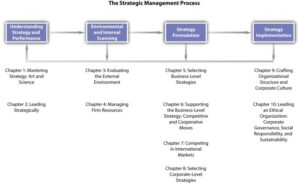
Small business payroll tools are essential for streamlining payroll processes, ensuring employees are paid accurately and on time. In a world where efficiency and compliance are paramount, these tools help small businesses navigate the complexities of payroll management, enabling them to focus on growth and productivity.
From tackling common challenges like manual calculations and compliance issues to exploring various types of payroll solutions available, this overview will guide you in selecting the right payroll tools tailored for your business needs.
Introduction to Small Business Payroll Tools
Managing payroll is a crucial aspect for small businesses, as it directly impacts employee satisfaction and compliance with labor laws. Payroll tools help streamline this process by automating tasks that can be tedious and prone to errors when done manually. Unfortunately, small businesses often face a myriad of challenges in payroll management, including limited resources, complex regulations, and the ever-changing landscape of tax laws.Small businesses typically grapple with challenges such as keeping up with government regulations, accurately calculating employee wages, and managing benefits.
These hurdles can lead to inefficiencies and potential legal issues if not addressed properly. Therefore, incorporating effective payroll tools is essential for smooth operations.When searching for payroll tools, key features to consider include user-friendliness, integration capabilities with existing systems, compliance management functionalities, and robust reporting features. A good payroll tool should not only simplify payroll calculations but also provide insights to help make informed business decisions.
Types of Small Business Payroll Tools
There are several types of payroll tools available in the market today, each catering to different business needs and preferences. Understanding these options can help small businesses choose the right fit for their operations.
- Cloud-based Payroll Solutions: These tools are hosted on the internet, allowing access from any device with internet connectivity. They often come with automatic updates and maintenance, making them a convenient choice for small businesses.
- On-premise Payroll Software: Unlike cloud-based solutions, this software is installed locally on a company’s computers. While it provides more control over data, it requires more IT resources and maintenance.
- Integrated Payroll Systems: These tools combine payroll functionalities with other business management needs like HR and accounting, creating a streamlined process for managing employee data and financial records.
Prominent payroll software options for small businesses include QuickBooks Payroll, Gusto, and Paychex. Each has its unique features suited to different business sizes and needs, making it essential to assess them based on specific requirements.
Business Innovation in Payroll Management
Technology is revolutionizing how payroll processes are managed, leading to significant improvements in efficiency and accuracy. Innovations such as automated payroll calculations, self-service portals for employees, and mobile access to payroll information are just a few examples of how technology is enhancing the payroll experience.One noteworthy trend is payroll automation, which significantly reduces manual data entry and errors. Automated systems can seamlessly integrate with other tools, ensuring that payroll aligns with accounting and HR data.
This not only saves time but also decreases the likelihood of compliance issues.Another innovative solution is the introduction of AI-driven analytics that can forecast payroll expenses and help businesses make data-driven decisions. These tools provide valuable insights, allowing businesses to allocate resources more effectively and improve overall financial management.
International Business Payroll Considerations
Managing payroll for international employees introduces complexities that can overwhelm many small business owners. Each country has its unique payroll regulations, tax laws, and compliance requirements, making it crucial to be well-informed to avoid penalties.Compliance challenges can arise from differing labor laws, taxation processes, and reporting standards. Small businesses operating internationally must ensure they are compliant with both local regulations and those of their home country.
This often requires a deep understanding of international payroll practices and regulations.To effectively manage multi-currency payroll systems, businesses should consider utilizing specialized payroll providers that offer multi-currency capabilities. This can help streamline processes and ensure that employees receive their compensation accurately and on time, regardless of their location.
Interviewing Payroll Software Providers
When choosing a payroll software provider, asking the right questions can help ensure that the selected solution meets your business needs. Essential questions to consider include:
- What features do you offer for compliance management and updates?
- Can your software integrate with our existing accounting and HR systems?
- What kind of customer support do you provide?
- How does your pricing structure work, and are there any hidden fees?
Evaluating the effectiveness of payroll tools involves considering their scalability, ease of use, and the ability to generate reports. It’s also beneficial to look for user reviews or case studies to gauge how well the software has performed for other businesses in a similar industry.Conducting thorough vendor interviews not only helps in selecting the right software but also allows for a better understanding of the provider’s reliability and support, which are critical for long-term success.
Job Search Techniques for Payroll Professionals

For those pursuing a career in payroll management, specific skills and qualifications are essential. Familiarity with payroll regulations, experience in accounting software, and strong analytical skills are highly valued in this field. Effective job search strategies include networking within industry groups, attending relevant conferences, and utilizing job boards that focus on finance and accounting roles. Additionally, tailoring resumes and cover letters to highlight relevant experience and skills can significantly improve job prospects.Networking is crucial for career advancement in payroll.
Establishing connections with other professionals can lead to mentorship opportunities, job referrals, and insights into industry best practices, making it an invaluable part of career development in this field.
Business Management and Payroll Integration
Integrating payroll tools into overall business management systems is essential for cohesion across various departments. Payroll impacts not only financial records but also employee satisfaction, making it a vital component of HR strategies.A well-integrated payroll system can improve employee retention by ensuring timely and accurate payments, which in turn fosters trust and loyalty. Furthermore, integrating payroll with HR and accounting software can streamline operations, reduce errors, and save time, enabling managers to focus on strategic initiatives rather than administrative tasks.
Wrap-Up

In summary, leveraging small business payroll tools not only simplifies payroll management but also enhances operational efficiency and employee satisfaction. As businesses evolve, staying updated with the latest payroll innovations will empower you to make informed decisions that benefit both your workforce and your bottom line.
User Queries
What are payroll tools?
Payroll tools are software or applications designed to automate and manage payroll processes, including calculations, tax withholding, and employee payments.
Why should small businesses use payroll tools?
They save time, reduce errors, ensure compliance with tax laws, and provide insights into payroll expenses, all of which are critical for effective business management.
Can payroll tools integrate with other business systems?
Yes, many payroll tools can integrate with HR, accounting, and other business management systems for seamless operations.
Are payroll tools secure?
Most reputable payroll tools implement robust security measures to protect sensitive employee data, including encryption and compliance with data protection regulations.
How much should a small business expect to spend on payroll tools?
Costs can vary widely based on features and the number of employees, but many solutions offer tiered pricing to accommodate different budgets.




